Mysterious circles in Namibia
In the grasslands and pastures of South Africa, there are thousands of circular patches of bare earth called "witch rings". They range from 2 to 15 m in diameter and appear right in the middle of grassy areas, mainly in Namibia. Although the same circles are present in Angola and South Africa. The circles are located about 160 km from the coast and stretch from Angola for 2400 km. They can be found in remote areas of the earth, far from human settlements. These circles have been studied since 1971, but so far scientists cannot explain the reason for their appearance. According to the beliefs of the Himba people, these circles are the work of the "hands" of a dragon that lives underground and releases fiery bubbles to the surface, burning all vegetation and forming circles of bare earth. And someone claims that circles appear due to ants, termites, radioactive soil, or toxins from the poisonous plant Damara euphorbia.
(Total 10 photos)
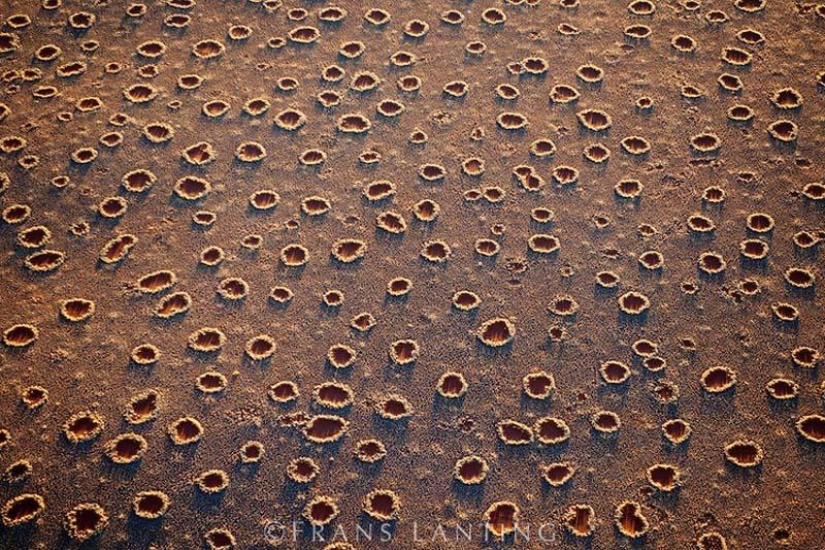
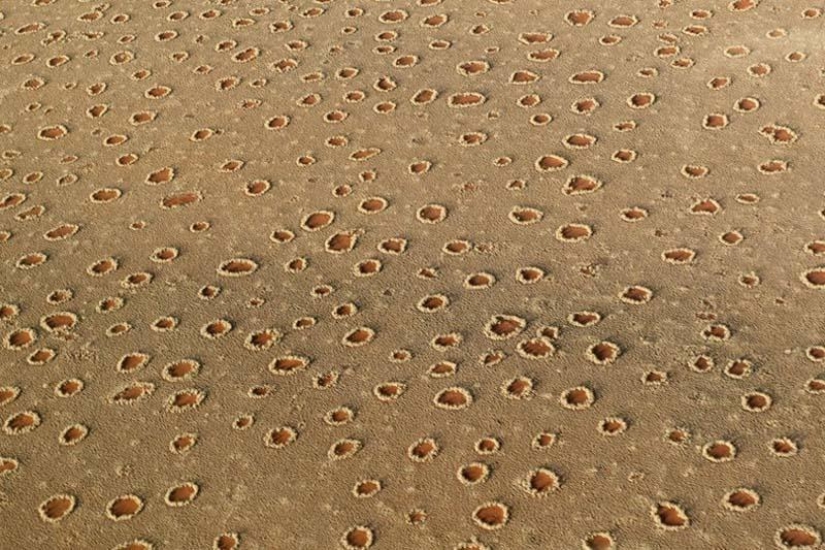
1. However, new research may shed light on the causes of these circles. German biologist Norbert Jürgens of the University of Hamburg found that these circles are the result of sophisticated environmental engineering, which is caused by termites of the species Psammotermes allocerus.

2. These sand termites were found in 80-100% of circles and in all newly formed circles. This is the only insect species that lives in the vicinity of this phenomenon.
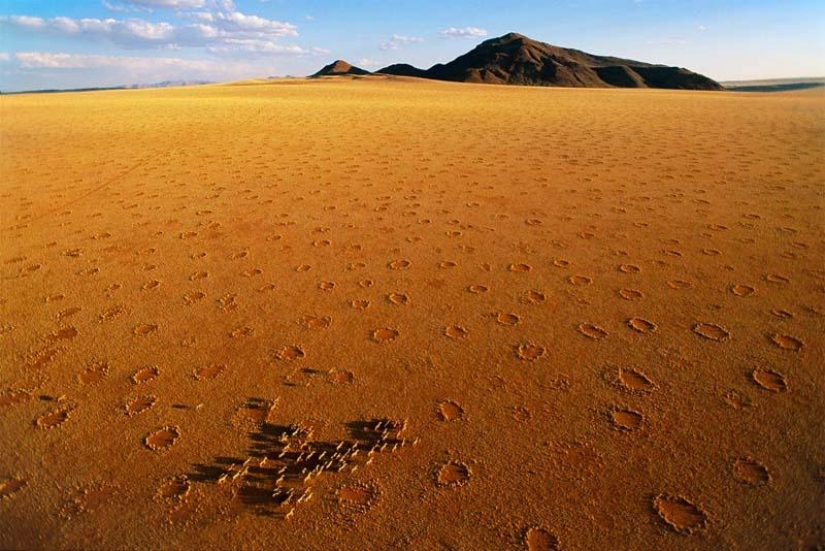
3. Termites create circles by devouring vegetation and burrowing into the ground. This creates the ring. Because of the bare circle of earth, water seeps through the sandy soil and collects underground, allowing the soil to remain moist even in the driest conditions.
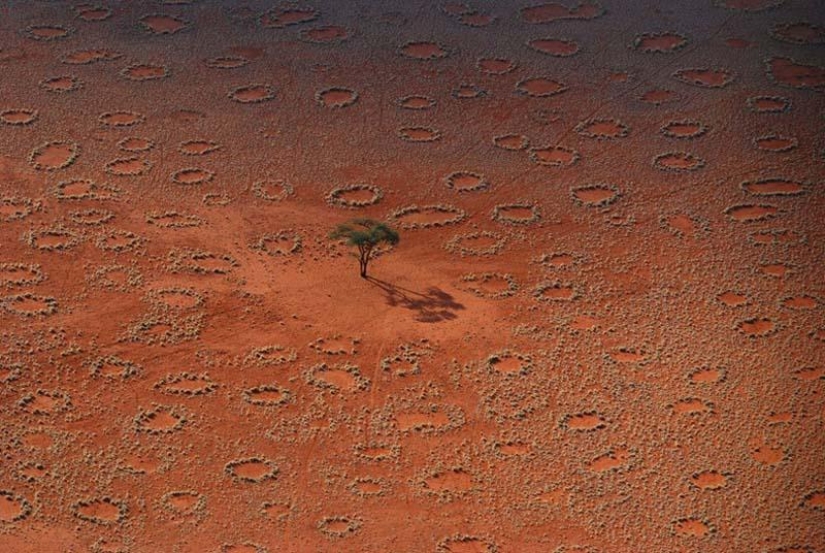
4. Grass grows on the edges of the circle due to the stored ground water, termites feed on the vegetation, constantly increasing the size of the circle.
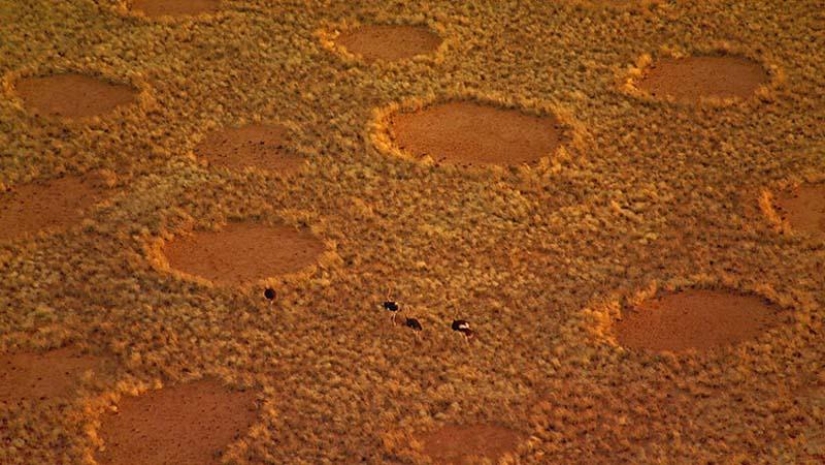
5. Through this behavior, sand termites have developed their own sources of food and water, creating a local ecosystem similar to that of the common beaver.
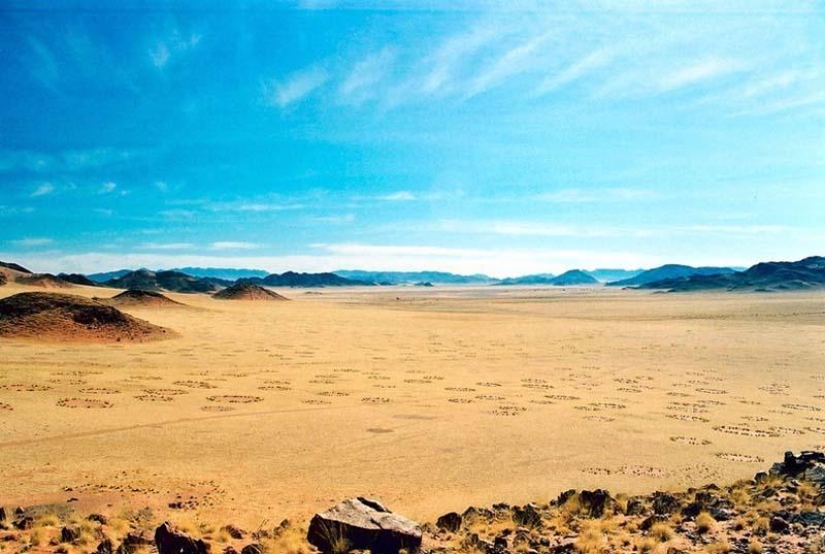
6. Walter R. Chinkel, a biologist at the University of Florida, questioned Jurgens' theory.
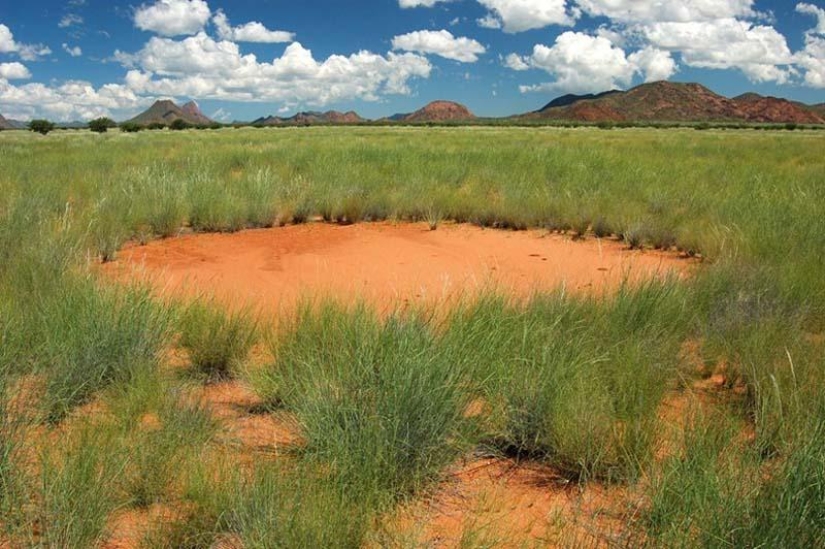
7. Previously, Chinkel himself searched for these termites, but without success.
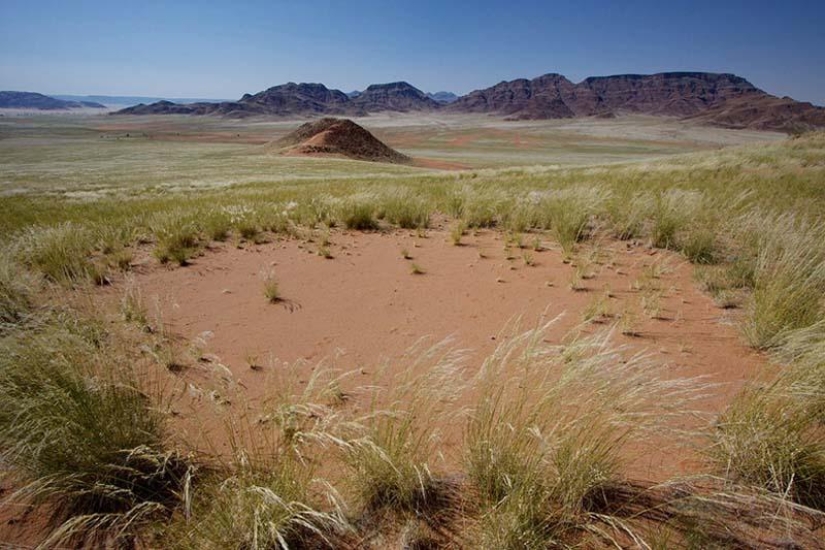
8. Jurgens answered this simply: "You were looking for the wrong termites, Mr. Chinkel."
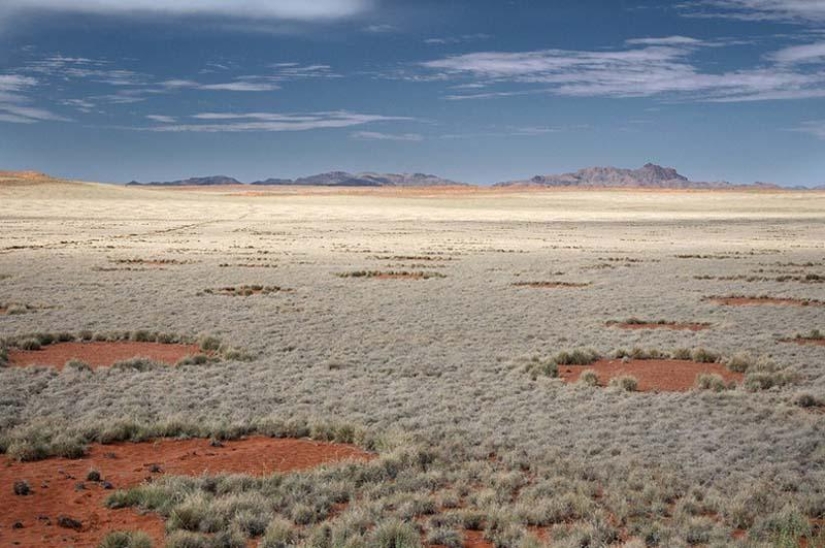
9. Sand termites are different from other species and live deep under the circle, they do not create termite mounds or nests on the ground and do not leave footprints in the sand.
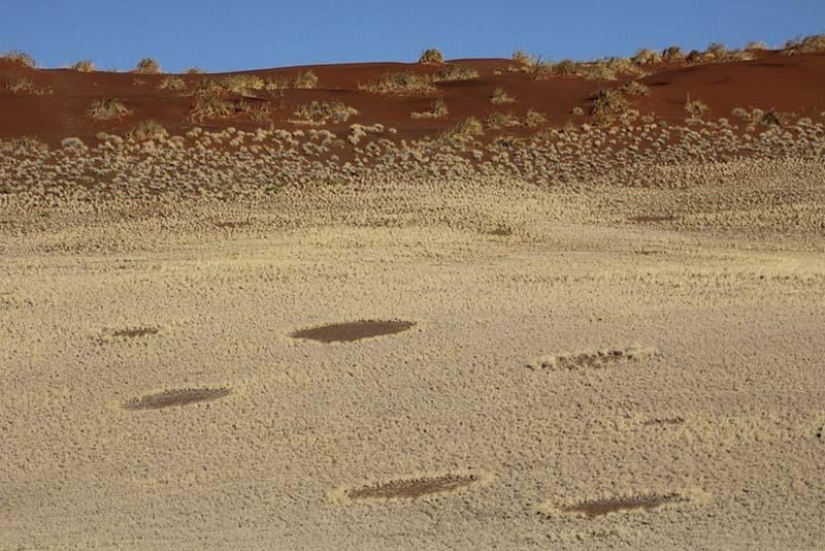
10. So far, the dispute over the cause of the appearance of circles has not been resolved. But the Himba people are not interested in scientific research. For them, everything is simple: circles are “footprints of the gods”.
Recent articles

It's high time to admit that this whole hipster idea has gone too far. The concept has become so popular that even restaurants have ...

There is a perception that people only use 10% of their brain potential. But the heroes of our review, apparently, found a way to ...
Related articles

During his trip to Africa, the famous Italian photographer Alex Bernasconi took thousands of pictures-from hiding hippos to ...

These are not paintings, as it might seem at first glance. These are photos that were taken in the Namib-Naukluft National Park in ...

In the southern part of the Namib Desert are the highest and most beautiful sand dunes in the world. Their color varies from pink ...

New Year's is a time to surprise and delight loved ones not only with gifts but also with a unique presentation of the holiday ...